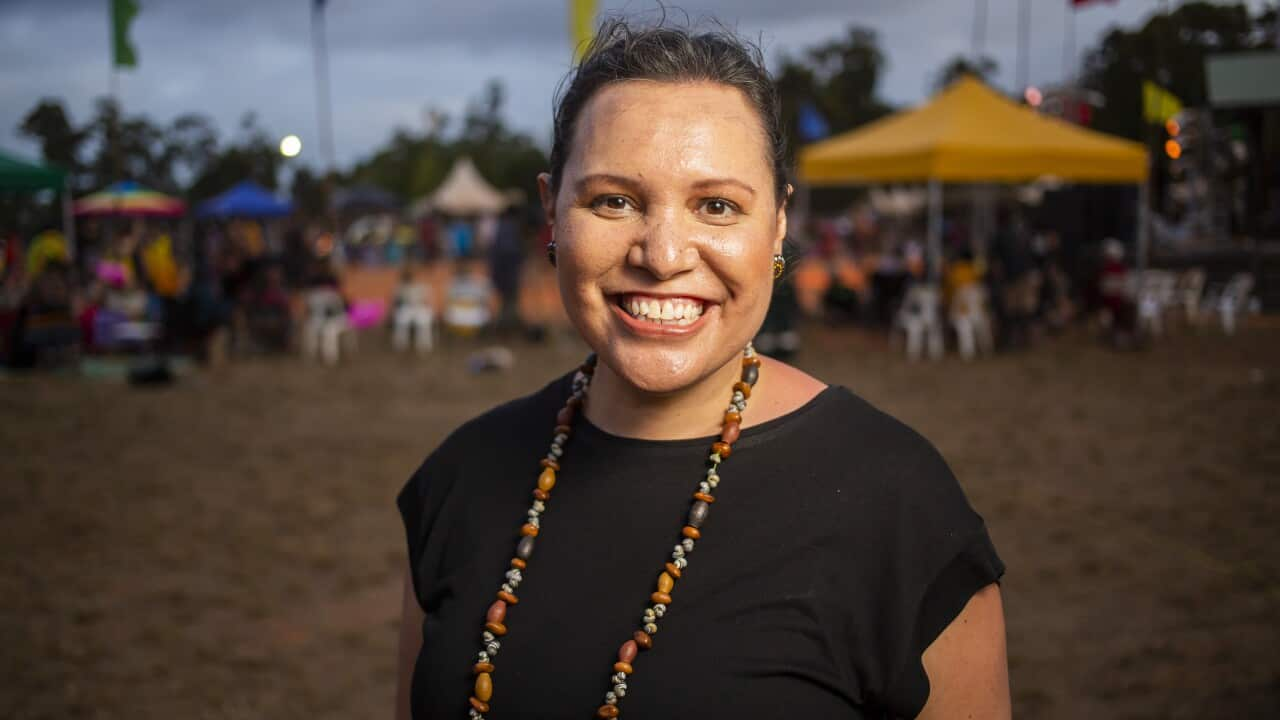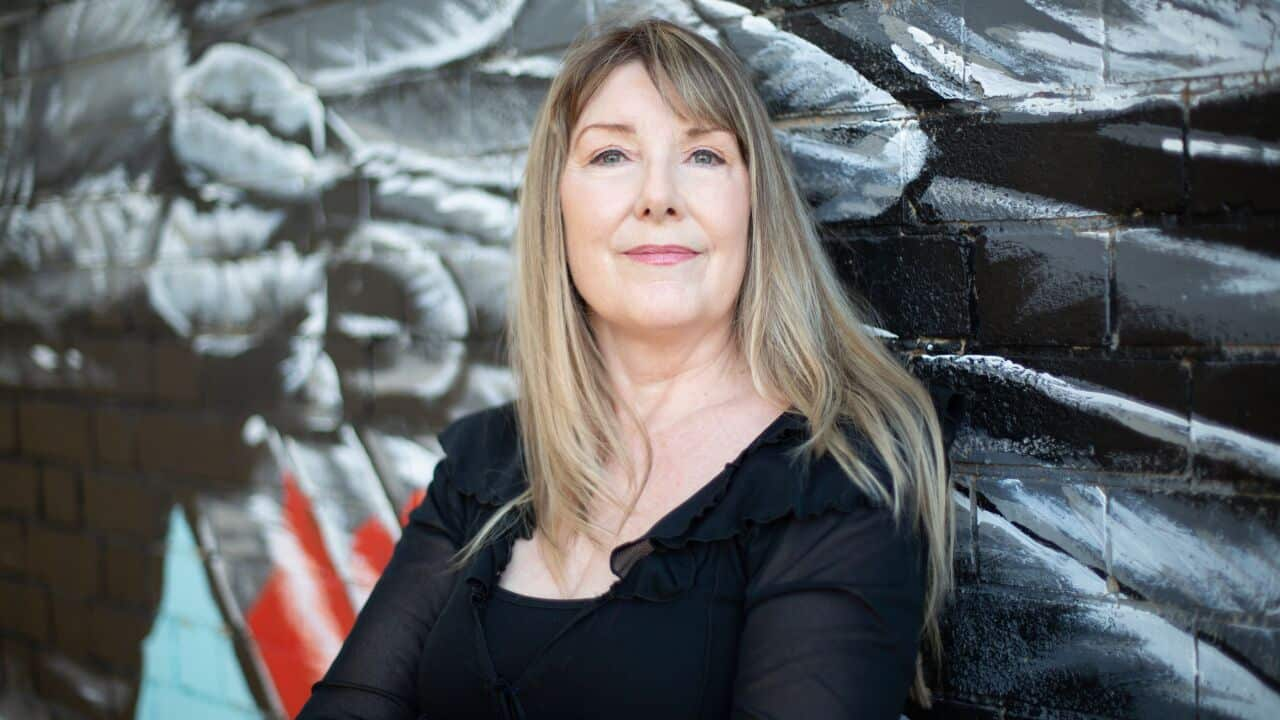Are we acknowledging our shared past and are we getting it right? Watch Insight's episode in collaboration with NITV, Recognising Our Past — on
Stream free On Demand

Recognising Our Past
episode • Insight • Current Affairs • 51m
episode • Insight • Current Affairs • 51m
SBS journalist Natalie Ahmat’s first January 26 report in 2008 wasn’t about fireworks or protests.
As First Nations Australians were marching in other parts of Australia, the Mudburra and Wagadagam woman covered a community barbecue and Australian rules football match on Bathurst Island, one of two Tiwi Islands, 80km north of Darwin.
"[I asked] Why football? Why a community barbecue? And what's your view on this day because we see up and down the eastern seaboard that the mob are out marching and it's, you know, day of protest," she said.
"And they said, 'for us, we like to celebrate Tiwi's contribution to Australia'."
Views about January 26 have remained diverse and continue to evolve.
For many First Nations people, the day has always been one of mourning.

Natalie Ahmat, SBS’s Head of Indigenous News & Current Affairs, says reporting on January 26 has changed over the nearly 20 years she has covered it.
Many Australians have in recent years referred to the date as Invasion Day or Survival Day.
While debate around whether Australia should move its national day has escalated, Ahmat says it's crucial respectful discussions about different views continue to be heard.

A younger Natalie Ahmat, now SBS’s Head of Indigenous News & Current Affairs, says January 26 has always been a rollercoaster day of mixed emotions.
"And that reflects First Nations people and communities as well. We don’t agree on everything," she said.
Open debate both good and bad
Australians' willingness — or unwillingness — to talk about January 26 over time has been both a plus and a minus, Ahmat says.
Before the onset of debate about whether the date should be Australia's national day — possibly about a decade ago, according to Ahmat — it was harder to get Australians to talk about it at all.
This was simply because many hadn’t decided how they felt about it.
"Indigenous Australians were particularly concerned about standing out if they made their views known," Ahmat said.
Getting commentary now is more straightforward as the January 26 controversy seeps into public consciousness.
But that too has its downsides.
"Obviously now there's a lot more awareness, so that makes it easier because you're not doing that education piece," she said.
"Unfortunately, it does also bring out ignorant questions, or racist comments when people find out you're Aboriginal."
"If they're genuinely interested, I will try and answer any of their questions."
"Sometimes it's quite exhausting and takes a bit of a personal toll because the questions can be very personal and go to the heart of who I am as a person."
Ahmat said some of those questions included being asked "what percentage Aboriginal" she was or being pressed for her views on specific First Nations issues.
From a community issue to a national one
No single event had triggered Australians' awareness about the history of January 26, but the rise of social media has contributed to louder public discourse, Ahmat added.
Not only has it provided information for people to learn about what happened more than 200 years ago, it's also acted as a bulletin board for marches and protests.
Australians no longer had just one day to debate on the streets but all year to talk about their concerns, Ahmat said.
"[That’s how] it became a countrywide issue rather than a community one," she said.
International movements such as Black Lives Matter that corralled Australians around issues like systemic racism also provided an opportunity for Australians to question their national day.
And sometimes it's quite exhausting and takes a bit of a personal toll because the questions can be very personal and go to the heart of who I am as a personNatalie Ahmat
In recent years, controversy about marking our national day has also spread to businesses taking a stance.
After the backlash to its decision not to sell January 26 merchandise in 2024,
Ahmat would rather there was less "noise" and more sound dialogue.
"I hope as we mature as a nation, we can create space for that respectful debate and not be distracted by the merchandise and the noise from other issues."
A rollercoaster day
For Ahmat, now SBS’s Head of Indigenous News & Current Affairs, January 26 has always been a "rollercoaster day of mixed emotions".
She said sombre reflection about how January 26 had changed the lives of Aboriginal and Torres Strait Islander people early in the day could give way to pride and joy later, depending on whether she was covering a protest march for a report or attending the Yabun Festival in Sydney.

Natalie Ahmat says Australia has a lot to celebrate as a nation, home to the oldest living culture.
"The fact is we have a lot to celebrate as a nation, home to the oldest living culture," she said.
"The day will mean different things to a range of different people and that’s okay."
From sex and relationships to health, wealth, and grief Insightful offers deeper dives into the lives and first-person stories of former guests from the acclaimed TV show, Insight.
Follow Insightful on the , , , or wherever you get you get your podcasts.
READ MORE

Insightful













